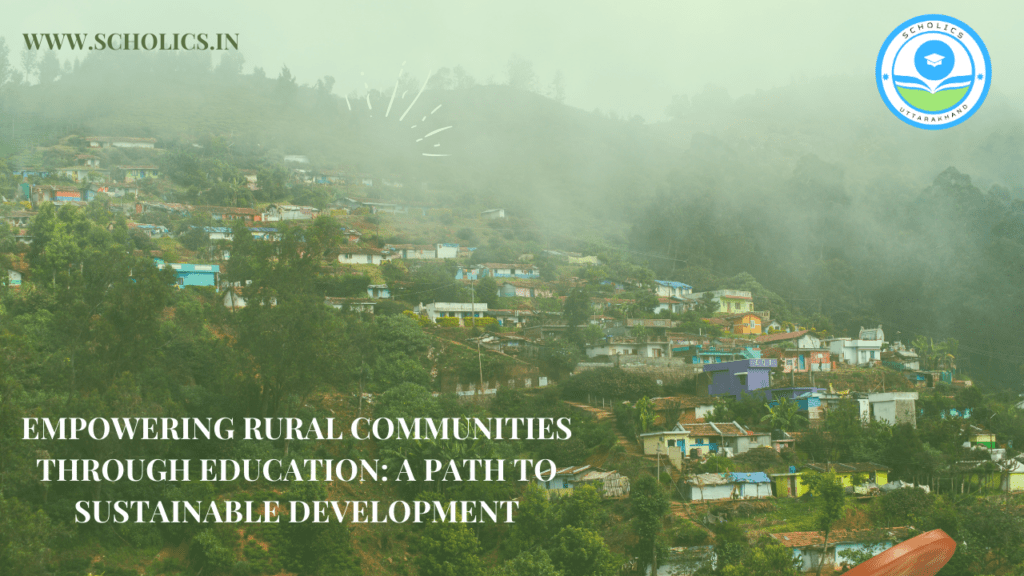Empowering Rural Communities Through Education: A Path to Sustainable Development

Introduction:
Rural development and education are intrinsically linked, forming the backbone of a prosperous and harmonious society. In this blog, we explore the transformative role of education in fostering sustainable rural development, empowering individuals, and unlocking the untapped potential of rural communities.

The Rural Reality:
Rural areas, though rich in natural resources and traditions, often face challenges such as limited access to quality education, healthcare, and economic opportunities. Breaking free from these limitations requires a holistic approach that places education at its core.
Education as the Catalyst:
Education acts as a catalyst, igniting a chain reaction of positive change in rural communities:
- Empowering Individuals: Education empowers individuals with knowledge, skills, and critical thinking abilities, equipping them to make informed decisions and participate in community development.
- Economic Upliftment: Educated individuals are better equipped to access job opportunities, start micro-businesses, and drive entrepreneurship, leading to economic growth within rural areas.
- Women’s Empowerment: Education plays a vital role in empowering women, enabling them to break societal barriers and actively participate in socio-economic activities.
Quality Education for All:
Ensuring quality education for all is the cornerstone of rural development:
- Infrastructure and Accessibility: Building and improving school infrastructure, ensuring access to schools, and providing transport facilities are essential steps in enhancing education opportunities.
- Empowering Teachers: Investing in teacher training and professional development ensures the delivery of quality education that fosters creativity and critical thinking.
- Innovative Teaching Methods: Leveraging technology and innovative teaching methods can bridge the education gap between rural and urban areas.
Community Engagement:
Community involvement is vital for successful rural development through education:
- Community Schools and Learning Centers: Establishing community schools and learning centers fosters a sense of ownership and involvement in education.
- Parent and Community Awareness: Conducting awareness programs for parents and community members on the importance of education encourages their active support in children’s education.
- Local Knowledge and Culture: Integrating local knowledge and culture into the curriculum promotes a sense of identity and belonging among students.
Sustainable Development Outcomes:
The impact of education on rural development is far-reaching:
- Poverty Alleviation: Education equips individuals with skills to escape the cycle of poverty and leads to improved living standards.
- Health and Sanitation: Educated communities are more aware of health and sanitation practices, leading to better health outcomes.
- Environmental Conservation: Education fosters a sense of environmental stewardship, encouraging sustainable practices and conservation efforts.
Education serves as the bedrock of rural development, unlocking the potential of individuals and communities alike. By investing in quality education, empowering teachers, and engaging communities, we can create a brighter and more equitable future for rural India. Let us join hands to build a nation where education becomes the catalyst for transformative change, leading us towards sustainable and inclusive development.




